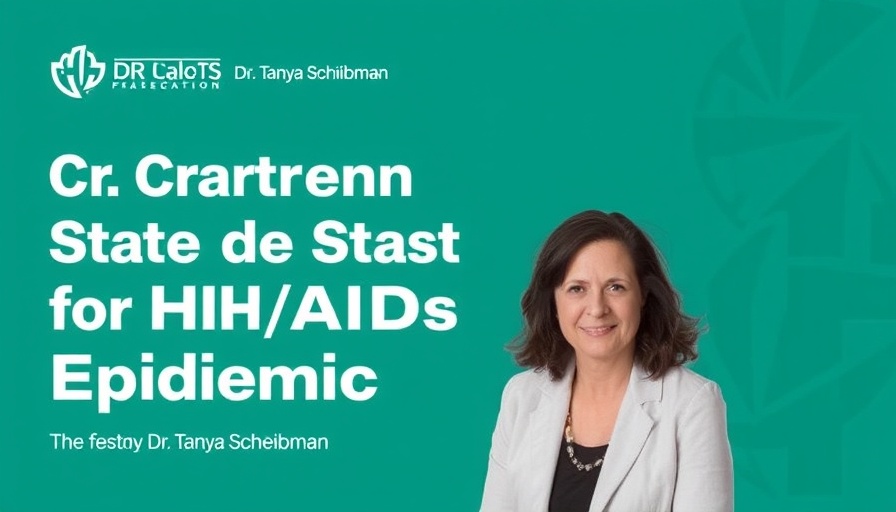
The Evolution of the HIV/AIDS Epidemic: History and Hope
In June 1981, the landscape of public health in the U.S. was forever altered as the first cases of HIV/AIDS were reported. This marked the beginning of an epidemic that has since taken the lives of over 39 million people globally and around 500,000 within the United States alone. Fast forward to today, approximately 1.1 million Americans are living with HIV, with 38,000 new diagnoses each year. The transmission methods include sexual contact, drug injections, and tainted blood products, indicating that HIV knows no boundaries.
Revisiting Stigma: The Battle Beyond Medicine
Dr. Tanya Schreibman, an infectious disease specialist and the Chief Medical Officer at the Community AIDS Network (CAN) in Sarasota, emphasizes that stigma remains a significant challenge in combating HIV/AIDS. Despite advancements in treatment making it manageable, societal perceptions still cloud the landscape. “Historically, the disease was primarily seen as an issue within specific communities. This misunderstanding persists despite evidence to the contrary,” she explains. Education combined with empathy is crucial if we are to foster acceptance and understanding.
Addressing Current Challenges in HIV/AIDS Healthcare
During her tenure at CAN, Dr. Schreibman has witnessed both advancement in patient care and significant challenges, especially regarding funding cuts from state and federal levels. These cuts particularly target prevention services that play a vital role in fighting the epidemic. “Prevention programs are essential. They reduce long-term healthcare costs and can make a real difference,” she reveals. Herein lies a contradiction: a single lifetime treatment cost for a person living with HIV can reach approximately $500,000, yet preventive measures receive reduced funding. This reality poses a stark challenge for community health organizations focused on empowering vulnerable groups.
The Importance of Prevention Services: A Lifeline for Communities
CAN’s strategy revolves around prevention and education, areas currently under threat due to funding cuts. Prevention services include programs like Pre-Exposure Prophylaxis (PrEP), which are designed for individuals at higher risk of HIV exposure. It’s a common misconception that PrEP is only for men who have sex with men, but Dr. Schreibman stresses that it should be recommended for anyone at risk, including women. “Our goal is to create an inclusive environment where everyone can access the care they need,” she states. These fundamental shifts in perspective are crucial as the fight against the epidemic continues globally.
The Future of HIV/AIDS: Insights and Opportunities for Change
As the healthcare landscape continues to evolve, so does our understanding of HIV/AIDS. Technologies and research advancements present new opportunities for treatment and management. Dr. Schreibman remains optimistic, stating, “Research keeps us on the forefront and provides opportunities for patients and staff alike. It’s the only way we’ll ever move forward with HIV.” While ongoing education and funding are fundamental, community-based networking plays a significant role in empowering HIV-positive individuals and ensuring they receive the necessary support.
Taking Action: How Florida Residents Can Help
Residents of Florida can play a vital role in addressing the HIV/AIDS epidemic through awareness, education, and advocacy. Engage with local health organizations like CAN and support community initiatives that promote HIV prevention. Dr. Schreibman passionately encourages everyone to dispel myths surrounding HIV and increase understanding within their communities. “We all have a part to play in reducing stigma and improving access to healthcare,” she urges.
Conclusion: Embracing Community and Knowledge for a Healthier Future
The story of the HIV/AIDS epidemic is one of tragedy, resilience, and hope. As we delve into the intricate dynamics of healthcare challenges, it becomes increasingly clear that collective efforts can lead to transformative changes. By educating ourselves and advocating for necessary resources, we can create healthier communities while contributing to the broader goal of ending the HIV/AIDS epidemic.
 Add Row
Add Row  Add
Add 



Write A Comment